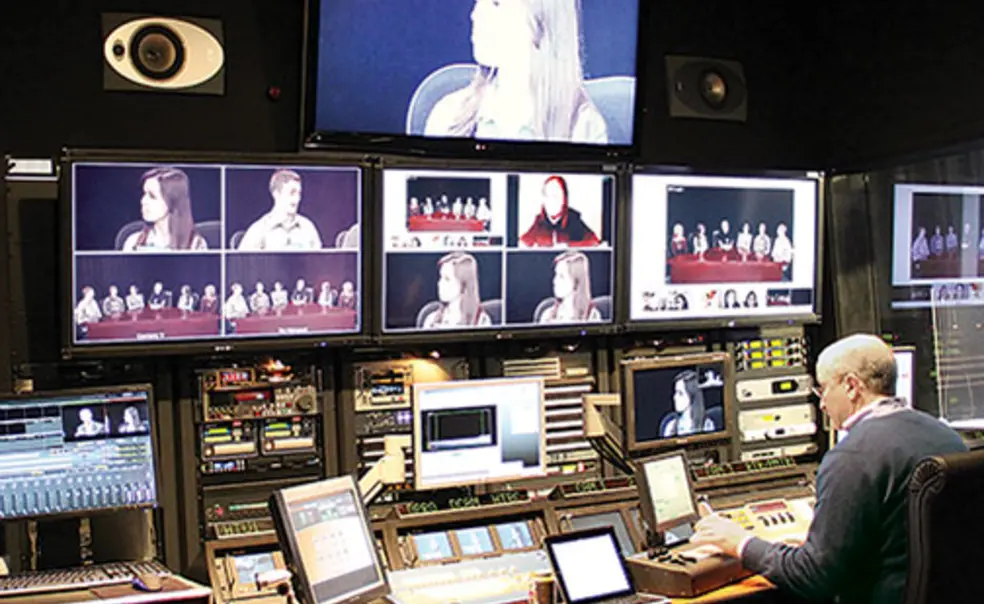Paying for MOOCs
A University plan triggers faculty debate over royalties, control of online courses
Three years after Princeton began experimenting with online instruction on the Coursera Web platform, some faculty members are questioning the administration’s proposed rules that would govern who owns the course material and how it should be paid for.
To date, the University has offered about 15 different free Massive Open Online Courses (MOOCs) across more than seven disciplines on Coursera and NovoEd, another online-course provider.
Princeton estimates that the average cost to create each course is between $25,000 and $35,000 — about half for video production in the University’s Broadcast Center and half for course development — and it wants to recover a share of that money. The administration proposed recouping expenses if a course generates revenue.
In advance of a March faculty meeting on the issue, more than 40 professors signed a letter challenging the University’s plan, suggesting the proposal would jeopardize faculty ownership and control of the online materials.
“When you publish a book, the administration does not demand a share of the royalties, nor does it assert the right to give free copies to every student without your permission, in perpetuity,” wrote computer science professor Andrew Appel ’81, who authored the letter to all faculty members. “When you publish a book or article, you don’t need to seek clearance from the administration first. But the administration is seeking all of these things if your scholarly work is in the form of online-course materials.”
Like other universities, Princeton is grappling with how participation in MOOCs will affect the institution and individual faculty members. Nationally, with expanding revenue potential in MOOCs — and the significant costs in producing them — disputes over who owns the content are increasing.
The University proposed the idea of reimbursement for faculty members’ use of certain resources to make online-course materials if those course materials later generate revenue. If that happens, then a portion of the revenue would be used to recover Princeton’s costs in preparing the materials.
A 2013 report by an ad hoc committee on online courses suggested that “the University might tax income generated from online courses at 50 percent until costs have been recovered” and after that, the number could drop to 10 percent.
History professor Jeremy Adelman, one of the first faculty members at Princeton to teach a MOOC, said he disagrees with the professors who oppose the plan to amend the Rules and Procedures of the Faculty. Adelman said he doesn’t believe the University will be fully committed to digital learning and teaching until it puts rules for teaching online courses in writing.
“If the University wants to expand its capacity [to produce online courses], it has to find a revenue source to do that,” Adelman said. “If it doesn’t have a revenue source for doing these things, then the question will always be posed — if we put money into online learning, what are we taking the money out of? And that means our commitment to digital learning won’t be as strong as it otherwise would be.”
Deputy Dean of the College Clayton Marsh ’85 said that since Princeton began incorporating online courses three years ago, income has been negligible. And while the proposed revisions to the faculty rules “stimulated an important and much-needed discussion,” he said, it’s clear that the faculty needs more time to discuss the proposal. In the meantime, Marsh said, Princeton will use a standard agreement for each online course that provides for cost recovery and addresses other details.
“I think we’re starting to realize now just how profoundly revolutionary online learning is going to be,” Adelman said. “But like all revolutions, it doesn’t happen in a day.”
As the world gets a taste of Princeton, Princeton gets ideas to improve at home
Berl ’14 gets his fill of online education













3 Responses
Michael E. Morandi *83
10 Years AgoMOOCS, Money, Mission
In reference to the article on MOOCs and certain professors’ objections to pending University policy (On the Campus, April 1), I believe Professor Jeremy Adelman has it right: The University needs some payback for the infrastructure required to make the necessary commitment that ultimately benefits the professors in increased textbook sales and visibility.
Few professors are so famous that, without the Princeton affiliation, they would amass a large audience. The analogy to rights associated with normal book contracts and article submissions, where the University asks nothing, is not apt in this new forum.
Charles R. Smith *72
10 Years AgoMOOCS, Money, Mission
In industry, anything an employee produces as a result of employment, including patentable inventions, belongs to the company, not the individual. Universities typically don’t go this route, but retaining only 10 percent after costs strikes me as far too little. Just as publishers retain the copyright of faculty-authored books, so the University should retain the copyright to faculty-produced University classes. I would argue for a generous third, after costs, for the faculty member and two-thirds for the University. Those wishing more need to sever ties with the University and start their own companies.
Sedgewick Baker *39
10 Years AgoMOOCS, Money, Mission
Princeton’s central mission is succinctly stated in a document titled Rights, Rules, Responsibilities, which can be found online at http://www.princeton.edu/pub/rrr/:
“The central purposes of a University are the pursuit of truth, the discovery of new knowledge through scholarship and research, the teaching and general development of students, and the transmission of knowledge and learning to society at large.”
On the basis of several decades of experience teaching, writing textbooks, and developing online content, including six online courses (four with my colleague Kevin Wayne), I can report the following: The truth is that online content is here to stay. We are learning and developing new and effective ways to disseminate knowledge, our online content is now having a positive impact on the majority of Princeton students, and we are now reaching millions of people worldwide.
This discussion is not about royalties and cost recovery. It is about how to best fulfill our central mission.